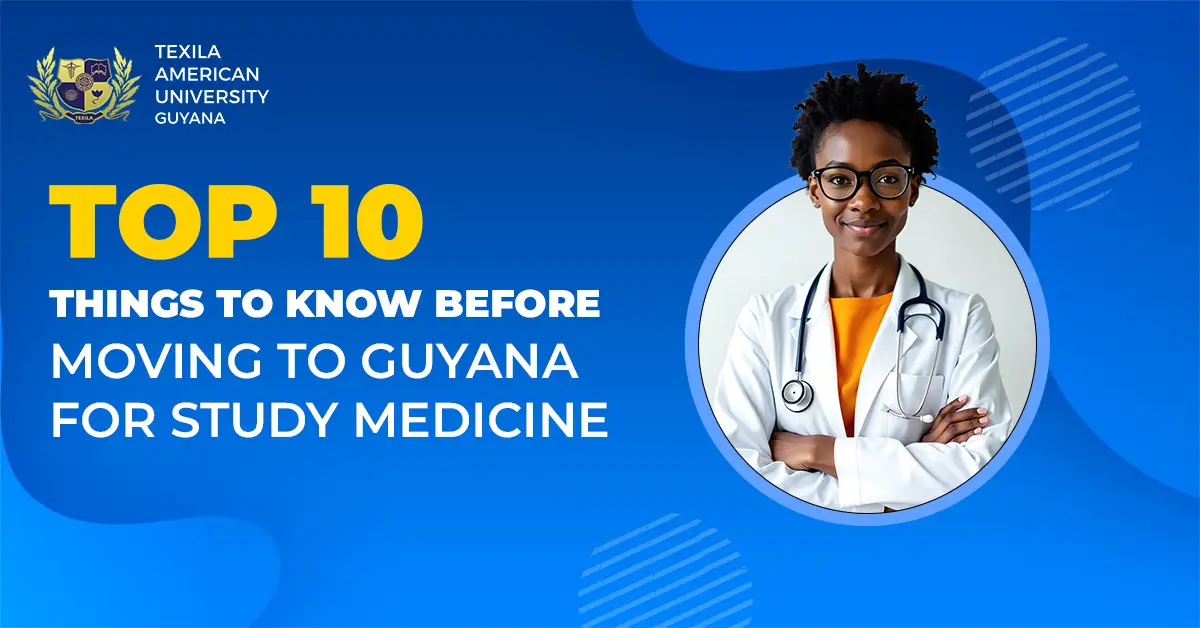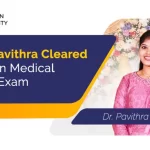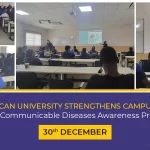Blog Summary
Moving abroad to study medicine is a big step both exciting and overwhelming. If you are an Indian student planning to study in Guyana, this blog will prepare you for the journey. From visa procedures and weather to cultural nuances, medical insurance, and daily essentials, we cover the top 10 things every Indian student should know before relocating to Guyana for their medical education.
- Introduction
- Apply for a Visa and Prepare Documents Early
- Get to Know Guyana's Weather and Climate
- Understand the Local Culture and Indo-Guyanese Presence
- Pack Essentials—But Travel Light
- Open a Bank Account and Plan Finances
- Learn Basic Safety Tips and Emergency Info
- Prepare for Academic Life at Texila
- Stay Connected: SIM Cards and Internet Access
- Health Insurance and Medical Preparedness
- Embrace the Experience with an Open Mind
- Conclusion
Introduction
Leaving home to study medicine in a foreign country can be one of the most rewarding decisions of your life. Guyana, with its English-speaking environment, affordable living, and growing popularity among Indian medical aspirants, is an ideal destination. However, adjusting to a new country, culture, and academic structure requires preparation. This blog covers the essential things Indian students should know before boarding their flight to Guyana—ensuring a smooth transition into student life abroad.
Apply for a Visa and Prepare Documents Early
Start your visa process at least 2-3 months in advance. Most Indian students entering Guyana for education need a student visa, which typically requires:
- Admission letter from Texila American University (or another institution)
- Valid passport (minimum 6 months validity)
- Proof of financial support
- Passport-size photographs
- Police clearance certificate
- Medical clearance
Once approved, the visa is stamped on arrival. Keep multiple copies of all documents—both physical and digital.
Get to Know Guyana’s Weather and Climate
Guyana has a tropical climate. Expect warm temperatures year-round (24–31°C) and frequent rainfall.
- Light cotton clothing is ideal.
- Bring an umbrella or raincoat for unexpected rainfall.
- Avoid bulky winter wear Guyana does not get cold.
Adjusting to the humid environment may take a few weeks, so stay hydrated and wear sunscreen.
Understand the Local Culture and Indo-Guyanese Presence
Indian culture is deeply rooted in Guyana. You will see temples, Indian restaurants, and festivals like Diwali and Holi being celebrated widely.
- Most locals speak English and Guyanese Creole.
- The Indo-Guyanese population, which makes up about 40%, offers a familiar cultural backdrop.
- People are warm and welcoming. Respect cultural norms and maintain friendly interactions.
- This cultural familiarity eases homesickness and helps Indian students integrate faster.
Pack Essentials—But Travel Light
Focus on the basics and buy larger items in Guyana. Essentials include:
- Prescription medicines (with a doctor’s note)
- Basic cooking utensils
- A few traditional outfits for festivals
- Daily wear, undergarments, and toiletries
- A lightweight blanket and one set of bedsheets
- Power adapters (Guyana uses 110V, same as the US)
You will find Indian grocery stores in Georgetown, so avoid overpacking food items.
Open a Bank Account and Plan Finances
Managing your money is crucial.
- Open a local bank account (Republic Bank, GBTI) with guidance from the university.
- Carry an international debit card for the first few weeks.
- Consider using apps like Wise or Remitly for money transfers.
Maintain a basic budget and track expenses using apps or spreadsheets. Most students spend $600–$800 per month.
Learn Basic Safety Tips and Emergency Info
Guyana is generally safe for students, especially around TAU and student housing zones.
- Always stay in groups when exploring new places.
- Keep emergency contacts handy (university helpdesk, local police, embassy).
- Use only trusted taxis or university transportation.
Campus security is available 24/7, and most student accommodations are in monitored, student-friendly neighbourhoods.
Prepare for Academic Life at Texila
Texila American University follows a structured Medicine Programs curriculum with practical rotations and global exam prep.
- The program is divided into Pre-med and MD.
- Attend an orientation to understand course structure, grading, and expectations.
- You will receive support for USMLE, FMGE, and NExT exams.
- TAU has faculty, mentors, and student bodies to support academic success.
Stay Connected: SIM Cards and Internet Access
Communication is vital during your initial weeks.
- Local telecom providers include GTT and Digicel.
- Prepaid SIMs are affordable and widely available.
- Internet packages range from $25–$40/month in shared apartments.
Stay in touch with family using apps like WhatsApp, Zoom, or Skype. Wi-Fi is available on campus and in most student accommodations.
Health Insurance and Medical Preparedness
You must have basic student health insurance before starting your program.
- TAU offers guidance in selecting affordable health plans.
- Carry necessary vaccinations and a basic medical kit.
- Know where the nearest clinics and hospitals are.
Medical costs in Guyana are lower than in the West, and students can access on-campus clinics for common issues.
Embrace the Experience with an Open Mind
Studying in Guyana is more than academics—it is a cultural adventure.
- Try local food like roti, pepperpot, and curry with a Caribbean twist.
- Attend community events and festivals.
- Make friends across cultures it is a global learning space!
Keep an open mind and step out of your comfort zone. You are not just earning a degree but growing as a global citizen.
Conclusion
Guyana is a welcoming and cost-effective destination for Indian medicine students. With preparation, planning, and the right mindset, you can adapt quickly and live well in your new environment. From managing finances and packing wisely to embracing Indo-Guyanese culture, these tips will help you settle in smoothly and focus on what truly matters your education and personal growth.
When should I start the visa process for studying in Guyana?
Start at least 2–3 months before your travel date to allow for documentation and approvals.
Is Guyana safe for Indian students?
Yes. Areas around Texila American University are student-friendly and secure, with 24/7 campus support.
Can I buy Indian groceries and clothes in Guyana?
Yes. Stores in Georgetown stock Indian grocery items, spices, and traditional wear.
What mobile providers should I use in Guyana?
GTT and Digicel are the most commonly used service providers for calls and the Internet.
What type of clothes should I pack for Guyana?
Light cotton clothes for warm weather, a few traditional outfits, and a raincoat or umbrella.












